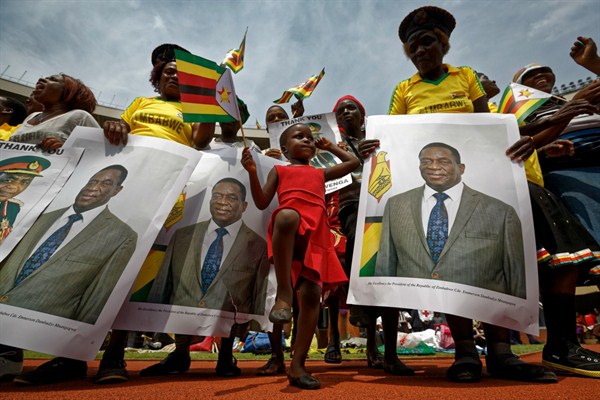As Zimbabwe finally enters the post-Robert Mugabe era, neighboring South Africa has an opportunity to play a constructive role in helping put in place a democratic roadmap. Despite being the dominant regional power and current chair of the 16-nation Southern African Development Community, or SADC, South Africa has, for too long, essentially endorsed the disastrous status quo in Zimbabwe. Mugabe’s unexpected ouster by the military should push South Africa to change course, making its Zimbabwe policy more in line with the values that underpin the South African constitution and inform the founding charters of the African Union and the SADC—though not necessarily the behavior of all member states.
South Africa has pursued a policy of “quiet diplomacy” with Zimbabwe ever since its neighbor descended into chaos in 2000, when a defeat for Mugabe in a referendum on changes to the constitution set off cascading political and economic unrest. Originally designed by then-President Thabo Mbeki and inherited by President Jacob Zuma, this policy was flawed in design, unprincipled in its implementation, and destructive in its impact. It exhausted any potential to deliver change in Zimbabwe long ago, ultimately amounting to a betrayal of South Africa’s own democratic ideals through a policy of collusion with Mugabe’s regime in the name of “sovereignty” and “liberation solidarity.”
The South African government has tacitly endorsed ZANU-PF’s continued electoral fraud as far back as 2002, when Mbeki ignored and then suppressed the findings of a judicial commission that he had sent to Zimbabwe to monitor its electoral procedures. Known as the Khampepe report, it highlighted a range of irregularities that collectively amounted to a rigged election. South Africa remained largely mute in 2008 when a campaign of state violence was launched against opposition voters after Mugabe lost in the first round of the presidential vote.

